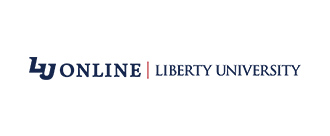About
About Liberty University
Founded in 1971, Liberty University is one of the world's leading Christian universities. It offers more than 600 unique programs and serves more than 100,000 students around the world through both residential and online programs. The university is accredited by the Southern Association of Colleges and Schools Commission on Colleges (SACS-COC), and many of its programs are additionally accredited by top accrediting bodies, such as ABET, Accreditation Council for Business Schools and Programs (ACBSP), Commission on Collegiate Nursing Education (CCNE), and the National Council for Accreditation of Teacher Education (NCATE).
While you can earn a degree in such areas as business administration, criminal justice, education, psychology, and nursing, you'll also find other programs that provide less-traditional studies - such as aviation, pastoral counseling, music education, green and sustainable management, theology, and global studies. Doctorates, including Ph.D., Ed.D., D.B.A., and D.Min, degrees among others are awarded in areas including higher education administration, public policy, and ministry as well as business administration, criminal justice, and nursing.
Liberty is committed to helping you achieve your goals and complete your degree as quickly as possible, and their admissions counselors are ready to assist you with this process. What can you expect from them?
- 100% online programs at associate, bachelor's, master's, and doctoral levels.
- Opportunities to get the most out of your hard work and maximize the credit you previously earned:
- Transfer up to 75% into an undergraduate degree program.
- Transfer up to 50% into a master's degree program.
- Online classes taught in a convenient 8-week format with no set login times
Student Testimonials
''Liberty's helpfulness came in handy when I was trying to get through the admissions and registration process while stationed in Turkey. Once I started, I found the professors to be very understanding of my military requirements and worked with me in order to adjust the class schedule around world events requiring my attention.''
- Christopher Lifto, Liberty Graduate
''I want to thank Liberty for offering online schooling. I have always struggled with paying attention in school, and having the ability to work on my courses through an online environment has really helped me achieve my goals. I am able to focus better in a quiet setting, versus in a large college campus classroom.''
- Shannon Balduini, Liberty Graduate
Why Liberty University?
- Christian Focus: The programs are designed to equip you to go into the world with the professional excellence and Christian ethics to make a long-term impact in your career and community.
- Program Variety: Liberty students can choose from more than 400 online degree programs offering a flexible learning experience.
- Unique Programs: Disaster management, fire administration, ethnomusicology, and biopsychology are just a few of the non-traditional programs to choose from if you're seeking a career outside of the more traditional boundaries of business, health, or education.
- Academic Support Services: From mentoring to tutoring, Liberty University provides you with the support you might need to improve your study or writing skills, pursue career development opportunities, or get technical support if you're studying online.
- Financial Support: Around 88% of Liberty students get financial aid assistance; the university is ready to help you navigate the financial aid process and apply for federal loans, scholarships, and grants. Generous discounts are also available to first responders and members of the military community, including service members, Dept. of Defense personnel, veterans, and military spouses.
Minimum Eligibility Requirements
Applicants to most Liberty University programs must have graduated from high school or earned a GED.


.svg)

